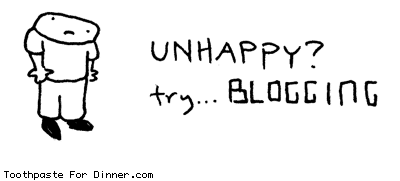Homo Faber
So hanging out in the apartment alone is very conducive to blogging. This is a reply to Ben's post on technophobia in the older generation.
A factor you didn't list: a lot of older people don't see the need for computers in their lives. My grandmother is totally computer illiterate as in "can't check her email or use Word" illiterate. She does use a cell phone and she's a pretty active business person. (She and my aunt have a bridal store in Bountiful.) Lots of people in the family have offered to teach her the ropes, and she seems amiable to the idea.
However, I think the main factor that's keeping her from it is that she doesn't really see a need for it in her life. Email, you say? She already has a cell phone and more people over at her house everyday to talk to than she can handle. Photo sharing? The relatives bring over their scrapbooks or send her pics in the mail, and she can see everything else. News? That's what she takes the paper for. Specialized information? I think libraries are still in existence, with real, actual people to help you. No need for word processing or spreadsheets or blogging or games. There's simply no viable reason to learn how. In fact, I think the only reason my grandmother even contemplates it is that she would get to spend some time with her grandchildren as they teach her.
We young people are convinced that the elderly are missing out on something tremendously important, and maybe they are. But we forget that people got along fine before computers. Most of the things we do via computer can still be done by hand or by phone. What, in the end, are they really missing out on?
Really, the only true reason for the "older" people to learn computers is in order to land a job. Similarly to the immigrants-learning-English analogy, they will only learn what they need and nothing more. They don't need computers to have fun or be personally productive. They already know a rich, fulfilling way of life without it.
More and more I envy these people. I spend a lot of time on my computer, and I'm sure only 10-20% of it is productive. A lot of what I do on here is not very concrete. Wouldn't I rather be out in their world, producing tangible things? Cooking and sewing and crafting and making--this is one point where Karl Marx and I can agree. Isn't it more satisfying to be Man the Maker than Man the Thinker? Digital creation and data pushing just doesn't cut it.






